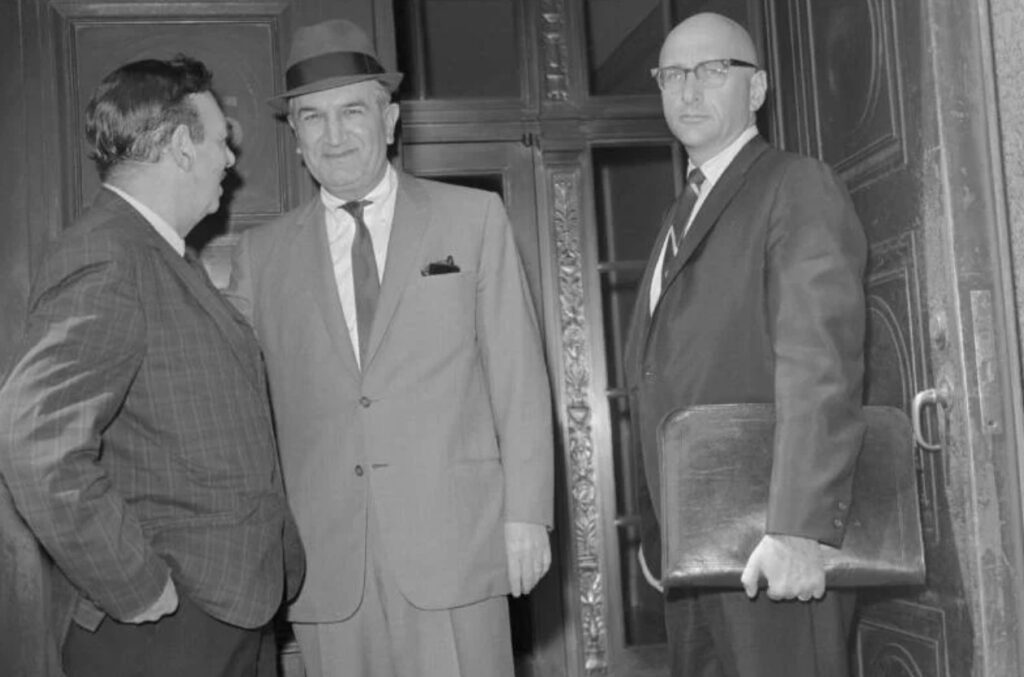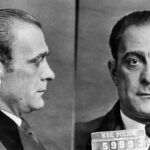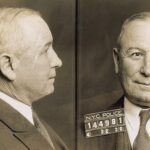The Bonanno crime family, a name that resonates with intrigue and notoriety, stands as a prominent pillar in the annals of organized crime in America. Originating from the sun-drenched shores of Sicily, this family’s journey to becoming one of the most formidable Mafia entities in New York City is a tale woven with ambition, power, and a relentless pursuit of influence. Their story is not just one of crime and power but also of cultural impact and survival in a rapidly changing world. As a symbol of the American Mafia’s reach and influence, the Bonanno family’s history offers a unique lens through which we can view the evolution of organized crime in the United States. Their legacy, marked by both notorious criminal activities and a complex societal impact, continues to fascinate and intrigue both law enforcement and the public alike.
The Sicilian Roots and American Ascent
The story of the Bonanno family begins in the late 19th century, with its roots deeply embedded in the Sicilian Mafia. The family’s patriarchs, initially based in Castellammare del Golfo, Sicily, laid the foundation for what would become a sprawling criminal empire. Their migration to the United States marked the beginning of a new chapter, one that would see them rise to the zenith of organized crime in New York City. This transition from the old world to the new symbolized not only a geographical shift but also a transformation in the nature of their criminal activities. As they settled in the bustling neighborhoods of New York, the Bonanno family began to weave their influence into the fabric of the city’s underworld. Their ascent in America’s organized crime scene was marked by strategic alliances, shrewd business practices, and, at times, brutal violence. The family’s ability to adapt to the American way of life, while maintaining their Sicilian roots, played a crucial role in their rise to power. Their story is a testament to the immigrant experience in America, seen through the lens of those who chose the path of organized crime.
The Castellammarese War – A Turning Point
The early 1930s witnessed a seismic shift in the landscape of organized crime in America, primarily through the Castellammarese War. This conflict, more than a mere power struggle, represented a clash of ideologies and visions for the future of the American Mafia. On one side stood Salvatore Maranzano, a traditionalist who believed in maintaining the old ways of the Sicilian Mafia. Opposing him was Joe Masseria, a forward-thinking boss who sought to modernize their operations in the New World. The war, named after the Sicilian town of Castellammare del Golfo, where many key players originated, became a battleground for control and dominance in the criminal underworld.
This period was marked by strategic maneuvers, alliances, and betrayals, as both factions vied for supremacy. The streets of New York became the chessboard on which this deadly game was played, with each move bringing with it a new wave of violence and upheaval. The eventual assassination of Joe Masseria, followed by the killing of Salvatore Maranzano, signaled the end of the old guard and the rise of a new era in organized crime. It was in this tumultuous environment that the Bonanno family, under the astute leadership of Joseph Bonanno, emerged as a formidable force, reshaping the Mafia’s future.
Joseph Bonanno – The Rise of a Mafia Don
Joseph Bonanno’s ascension to the top of the family hierarchy in the wake of the Castellammarese War marked the beginning of a transformative era. Known as “Joe Bananas”, a moniker he reportedly despised, Bonanno’s leadership style combined traditional Sicilian values with a keen understanding of the American criminal landscape. He was a visionary leader who recognized the potential for expansion beyond the traditional rackets of the Mafia.
Under his guidance, the Bonanno family ventured into new territories of crime. They established lucrative operations in loan sharking, a practice that preyed on the financially vulnerable, offering them quick solutions but at exorbitant costs. Gambling rings also flourished under his reign, adding to the family’s diverse criminal activities. However, Bonanno’s tenure was marked by more than just expansion; it was a period of consolidation and strengthening of the family’s internal structure, fortifying their position in the Mafia hierarchy.
The Internal Strife – The Banana War
The 1960s brought to the fore the underlying tensions within the Bonanno family, culminating in the notorious internal conflict known as the “Banana War.” This internal strife was not merely a struggle for power but was emblematic of a deeper ideological divide within the family. Joseph Bonanno’s ambitious plans, which included the audacious plot to assassinate several rival Mafia bosses, set the stage for a dramatic showdown within the New York Mafia.
Bonanno’s disappearance, following the failed assassination attempts, created a power vacuum that plunged the family into chaos. Factions emerged, each vying for control and influence, as the family’s unity began to fracture. The streets of New York once again became the backdrop for a Mafia conflict, but this time the battle lines were drawn within the same family. The Banana War was a testament to the volatile nature of power within the Mafia, where loyalty could be fleeting, and ambition often led to betrayal. This period of turmoil would leave an indelible mark on the Bonanno family, reshaping its dynamics and leaving a legacy of conflict and struggle for power.
The Modern Era – Challenges and Adaptation
As the 20th century progressed, the Bonanno family encountered a landscape of organized crime that was rapidly evolving, presenting new and formidable challenges. The introduction of the Racketeer Influenced and Corrupt Organizations (RICO) Act in 1970 marked a pivotal shift in law enforcement’s approach to tackling organized crime. This legislation provided authorities with powerful tools to prosecute the Mafia, enabling them to target the economic foundations of criminal enterprises. For the Bonanno family, this meant a significant recalibration of their operations and strategies.
The impact of the RICO Act was further compounded by increased law enforcement scrutiny, which intensified following high-profile cases and public outcry against Mafia activities. The family found itself under a relentless spotlight, with every move being closely monitored. This period also saw the emergence of sophisticated surveillance techniques and a more collaborative approach among federal agencies, making it increasingly difficult for the family to operate with impunity.
One of the most significant blows to the Bonanno family came with the infiltration of the family by FBI agent Joseph Pistone, who operated under the alias “Donnie Brasco”. Pistone’s deep undercover work, which lasted from 1976 to 1981, led to a profound betrayal of trust within the family and resulted in numerous convictions. His ability to penetrate the inner workings of the Mafia provided law enforcement with invaluable insights and evidence. The repercussions of Pistone’s infiltration were far-reaching, leading to a diminished power base for the Bonanno family and a reevaluation of their internal security protocols.
Joseph Massino and the Turning of a Boss
The early 2000s marked another watershed moment in the history of the Bonanno family with the arrest and subsequent cooperation of Joseph Massino, the then-boss of the family. Massino’s decision to turn informant was a groundbreaking development in the annals of organized crime, shattering the Mafia’s long-standing code of omertà, or silence. His cooperation with federal authorities led to a series of high-profile convictions, unraveling the fabric of the Bonanno family’s criminal network.
Massino’s defection was not just a personal betrayal but represented a seismic shift in the dynamics of the Mafia. It signaled a new era where the once-unbreakable bonds of loyalty and silence within the Mafia were no longer assured. His testimony provided a rare glimpse into the inner workings of the Mafia, offering unprecedented insights into their operations, hierarchies, and rituals. This event sent shockwaves through the underworld and significantly altered the landscape of organized crime in America.
The Bonanno Family in Popular Culture
The Bonanno family’s saga has transcended the boundaries of organized crime to leave an indelible mark on popular culture. Their story has captivated the imagination of authors, filmmakers, and audiences worldwide, becoming the subject of numerous books, films, and television shows. The most notable among these are “The Godfather” and “Donnie Brasco“, which have played pivotal roles in shaping the public’s perception of the Mafia.
“The Godfather”, a cinematic masterpiece by Francis Ford Coppola, drew inspiration from the real-life stories of Mafia families, including the Bonannos. The film’s portrayal of the intricate relationships, honor codes, and brutal realities of Mafia life offered viewers a dramatized glimpse into this secretive world. Similarly, “Donnie Brasco,” based on the true story of Joseph Pistone’s undercover operation, provided a stark portrayal of the dangers and ethical dilemmas faced by those infiltrating the Mafia.
These cultural representations have significantly influenced how the Mafia is viewed, often romanticizing their lifestyle while also highlighting the brutal consequences of their actions. The Bonanno family’s story, as depicted in these works, blurs the lines between fiction and reality, creating a mythos that continues to fascinate and engage audiences around the world.
The Legacy and Future of the Bonanno Family
In the contemporary landscape of organized crime, the Bonanno crime family persists as a significant, albeit altered, force. Their journey from humble beginnings as Sicilian immigrants to becoming a formidable entity in the American Mafia is a narrative steeped in resilience, adaptability, and strategic acumen. This legacy is not merely about their criminal endeavors; it encompasses their ability to navigate the complex socio-political changes over decades, reflecting a deeper understanding of survival and influence.
The Bonanno family’s story is interwoven with the history of organized crime in America, serving as a mirror to the nation’s own struggles with law, order, and ethics. Their ability to adapt to changing times, whether it be the Prohibition era, the advent of the RICO Act, or the digital age, speaks to their enduring presence in the criminal world. Today, as they face the challenges of the 21st century, including advanced law enforcement techniques and the globalization of crime, the Bonanno family’s adaptability is being tested like never before.
The future of the Bonanno family remains shrouded in uncertainty and speculation. With the traditional structures of the Mafia being challenged and new forms of organized crime emerging, the family finds itself at a crossroads. Will they hold onto the old ways, or will they evolve in unforeseen ways to retain their relevance in the ever-changing landscape of organized crime? The answers to these questions will write the next chapters in the Bonanno family’s enduring saga.
The Enduring Saga of the Bonanno Crime Family
The saga of the Bonanno crime family, from their Sicilian roots to their prominence in the American Mafia, is a narrative rich in themes of power, resilience, and adaptability. Their story is a complex tapestry that illustrates the intricate dynamics of organized crime, the challenges of leadership and loyalty, and the impact of socio-political changes on criminal enterprises.
The Bonanno family’s journey is emblematic of the broader story of organized crime in America. It reflects the struggles between tradition and innovation, loyalty and betrayal, power and downfall. As they continue to operate in the shadows, their story remains a captivating and crucial chapter in the history of the American Mafia, offering insights into the human aspects of organized crime and the unyielding pursuit of power.
Their legacy, marked by both their criminal achievements and their ability to withstand the test of time, continues to intrigue and fascinate. As the world of organized crime evolves, the Bonanno family’s ability to adapt will determine their place in future histories. Their story, a blend of historical fact and cultural myth, remains a compelling narrative in the annals of American crime, a saga that continues to unfold in the complex and shadowy world of the Mafia.







